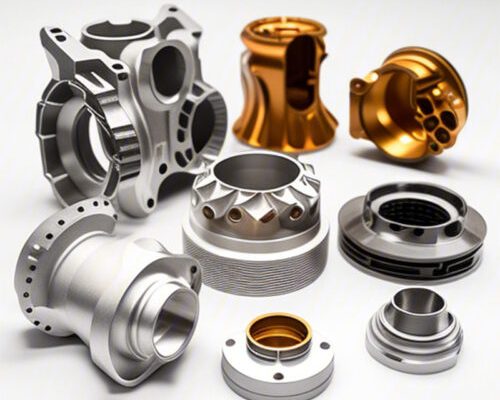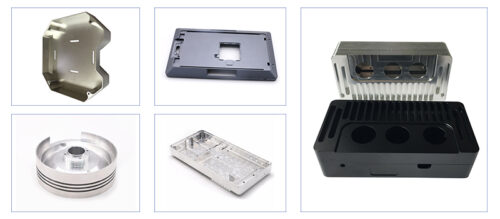Computer Numerical Control (CNC) machining is a precision manufacturing process that uses computerized programming to control machine tools. It is widely used for producing complex metal parts with high accuracy and repeatability. In this article, we will explore the different types of metals suitable for CNC machining, their characteristics, and the various applications of these metals in the industry.
Common Metal Types for CNC Machining
1. Steel
Steel is one of the most popular metals for CNC machining due to its strength and durability. It is an alloy consisting mainly of iron, carbon, and other elements in varying proportions. The main types of steel used in CNC machining include:
- Carbon Steel: Known for its strength and affordability, it is widely used for general-purpose applications.
- Stainless Steel: Resistant to corrosion, it is ideal for parts that will be exposed to humid environments or chemicals. Common grades include 304, 316, 410, 430, and 2205.
- Alloy Steel: Enhanced with elements like chromium, nickel, and molybdenum, alloy steel offers improved mechanical properties, making it suitable for high-strength applications.
2. Aluminum
Aluminum is favored for its lightweight, corrosion resistance, and excellent machinability. It is less dense than steel, making it ideal for applications where weight is a concern. Common aluminum alloys used in CNC machining include 2024, 6061, and 7075.
3. Brass
Brass, an alloy of copper and zinc, is known for its excellent machinability, corrosion resistance, and attractive golden color. It is often used in applications such as fittings, valves, and musical instruments.
4. Copper
Copper is valued for its superb electrical and thermal conductivity, making it ideal for electrical components and heat exchangers. It is also known for its excellent machinability and resistance to corrosion.
5. Titanium
Titanium is a high-strength, low-density metal with excellent corrosion resistance. It is often used in aerospace, medical, and high-performance applications where strength-to-weight ratio is critical.
Characteristics of Metals in CNC Machining
- Machinability: How easily a material can be machined affects the production time and cost. Materials like aluminum and brass are known for their high machinability.
- Strength and Durability: Steel and titanium offer high strength, making them suitable for load-bearing applications.
- Corrosion Resistance: Stainless steel, brass, and copper are resistant to corrosion, making them ideal for parts exposed to harsh environments.
- Thermal Properties: Copper and aluminum have high thermal conductivity, which is beneficial for heat exchangers and electrical components.
Applications of CNC Machined Metal Parts
- Aerospace Industry: Precision parts for aircraft and spacecraft, such as engine mounts and landing gear components.
- Automotive Industry: Components like axles, gearboxes, and cylinder blocks.
- Defense Industry: Precision parts for radar, weapons, and communication equipment.
- Healthcare Industry: Diagnostic tools, surgical instruments, and medical implants.
- Oil and Gas Industry: Parts for drilling equipment, pumps, and valves.
In conclusion, the choice of metal for CNC machining depends on the specific requirements of the application, including factors such as strength, corrosion resistance, thermal properties, and machinability. Understanding these characteristics can help manufacturers select the optimal material for their CNC machining projects.


